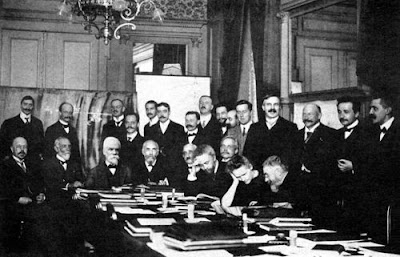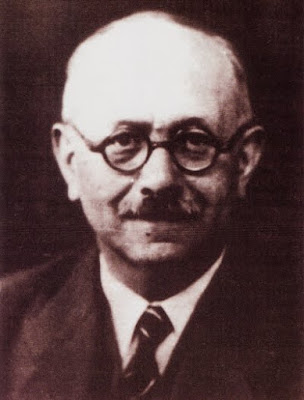One of Marc Bloch's most important contributions was to reinvigorate the idea of "comparative history." Bloch believed that we could understand French feudalism better by putting it into the context of European legal and property regimes; and more broadly, he believed that the careful comparison of agrarian regimes across time and space could be an important source of insight into human societies. Moreover, he did not believe that the cases needed to be sociologically connected. He thought that we would learn important new truths by comparing medieval French serfdom with bonded labor in Senegal in the twentieth century, and one of the innovations developed in Bloch's editorship of Annales d'histoire économique et social was precisely his openness to this kind of comparison. (Bloch's ideas about comparative history are presented in his 1928 article, "Toward a Comparative History of European Societies," reprinted in Frederick C. Lane and Jelle C. Riermersma, eds., Enterprise and Secular Change: Readings in Economic History
What is "comparative history"? Most basically, it is the organized study of similar historical phenomena in separated temporal or geographical settings. The comparative historian picks several cases for detailed study and comparison, and then attempts to identify important similarities and differences across the cases. Theda Skocpol's treatment of social revolution is a case in point (States and Social Revolutions: A Comparative Analysis of France, Russia and China
Other possible comparative research projects might include --
- Slave-based agriculture in Rome and the antebellum United States South
- Rituals of royal healing in medieval France and Bali
- Religious pilgrimages in Islam and Christianity
- Periods of rural unrest in Britain and Malaysia
- Modern economic development in England, France, and China
- Frontier societies in nineteenth-century North America and seventeenth-century Russia
- Feudal legal institutions in eastern and western Europe
- Processes of urban development in London, Mumbai, and Berlin
There might be several goals. First, we might imagine that some of these phenomena are the effect of similar causal processes, so comparison can help to identify causal conditions and regularities. This approach implies that we think of social structures and processes as being part of a causal system, where it is possible to identify recurring causal conditions. This seems to be Skocpol's approach in States and Social Revolutions, though she later extends her views in an article mentioned below. Researchers often make use of some variant of Mill's methods in attempting to discover significant patterns of co-variation of conditions and outcomes. See an earlier posting on "paired comparisons."
Second, we might have a theory of social types and subtypes into which social formations fall. The purpose of comparison would be to identify some of the sub-types of a general phenomenon such as "slave economy". This sounds pretty much like the approach that Comte and Durkheim took; it corresponds to a social metaphysic that holds that there are finitely many distinct types of society, and the central challenge for sociology is to discover the structural characteristics of the various types.
Third, we might have a fundamentally functionalist view of social organization, along with a basic repertoire of social functions that need to be performed. We might then look at religious systems as fulfilling one or more social functions -- social order, solidarity, legitimacy -- in alternative ways. Comparison might serve to identify functional alternatives -- the multiple ways that different social systems have evolved to handle these functional needs.
Another possible purpose of comparative history is to attempt to discover historical and social connections across separate historical settings. For example, examining different methods of labor control in different fascist countries in the 1930s may give us a basis for assessing some of the forms of influence that existed between these movements and governments (post). And Victor Lieberman's comparative study of the rise and fall of state power in France and Burma falls in this category as well; see an earlier posting on his metaphor of "strange parallels".
Finally, we might have a social metaphysics that emphasizes contingency and difference. This perspective differs from the first several ideas, in that it looks at structured comparative study as a vehicle for identifying difference rather than underlying similarity. Examining the histories of Berlin and Delhi may shed a great deal of light on the range of social forces and historical contingencies that occurred in these ostensibly similar cases of "urbanization". Here the goal of comparison is more to discover alternatives, variations, and instances of path dependency. Charles Sabel and Jonathan Zeitlin's analysis of alternative forms of capitalist development in "Historical Alternatives to Mass Production" illustrates this possibility (link; see also World of Possibilities: Flexibility and Mass Production in Western Industrialization
So there are a number of different intellectual purposes we might have in undertaking comparative historical research. How have other social scientists understood these issues?
Theda Skocpol and Margaret Somers address precisely this issue in "The Uses of Comparative History in Macrosocial Inquiry" (link). Their analysis highlights three distinct models of analysis that can underlie comparative inquiry:
There are, in fact, at least three distinct logics-in-use of comparative history. One of them, which we shall label comparative history as macro-causal analysis, actually does resemble multivariate hypothesis-testing. But in addition there are two other major types: comparative history as the parallel demonstration of theory; and comparative history as the contrast of contexts. Each of the three major types of comparative history assigns a distinctive purpose to the juxtaposition of historical cases. Concomitantly, each has its own requisites of case selection, its own patterns of presentation of arguments, and--perhaps most important--its own strengths and limitations as a tool of research in macrosocial inquiry. (175)R. Bin Wong offers a different view of the value of comparison in historical studies in his important comparative study of Chinese economic and political development (China Transformed: Historical Change and the Limits of European Experience
Ultimately it seems that there are really only two fundamental intellectual reasons for being particularly interested in historical comparisons. One is the hope of discovering recurring social mechanisms and structures. This is what Charles Tilly seems to be about in his many studies of contentious politics. And the second is the hope of discovering some of the differentiating pathways that lead to significantly different outcomes in ostensibly similar social settings. The first goal serves the value of arriving at some level of generalization about social phenomena, and the second serves the goal of tracing out the fine structure of the particular.
(The images above represent rice cultivation in Bali and grain cultivation in France. As Marc Bloch might have observed, they depict landscapes that reflect fundamentally different agrarian regimes: intensive cultivation in small plots in Bali, versus extensive cultivation making use of a considerable amount of animal or machine traction in France. And Bloch would have been likely to spend a great deal of effort at discovering the legal, cultural, religious, and technical characteristics of the two regimes.)



